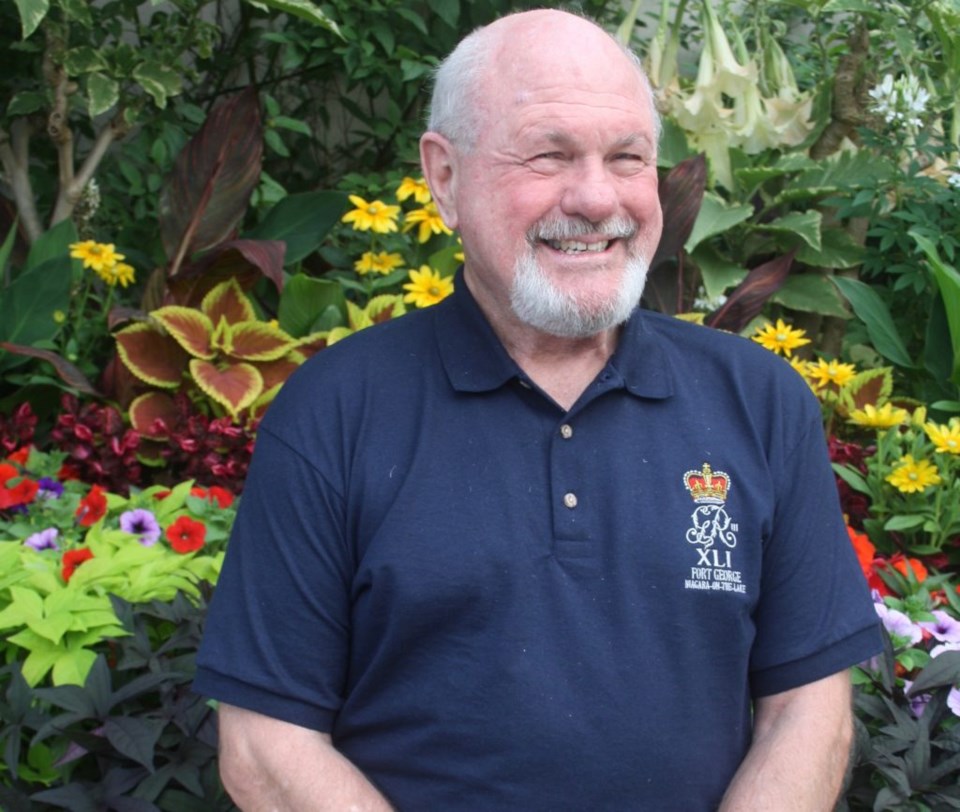
During an important time in the governance of the Niagara Peninsula Conservation Authority as the board moves from political representatives to citizen members with relevant skills and knowledge, council is showing confidence in a local man who is expected to take his position on the board in October.
St. Davids resident Dr. William Rapley has been recommended by town council to represent Niagara-on-the-Lake. His nomination must be accepted by regional council, which is responsible for creating a balanced NPCA board, says Gary Zalepa, NOTL’s regional councillor.
Zalepa was nominated to an interim board when it was formed earlier this year amid controversy following the October municipal election. NPCA governance had become the subject of criticism locally and from the Province, and a board of regional councillors was put in place with the expectation that it would take three months to straighten out those issues before being replaced with citizen representatives.
Although it’s taken considerably longer to solve issues of governance and budgets, “we’re nearly there,” says Zalepa.
Some other municipalities have already chosen their citizen representatives, which have been accepted by regional council, some have indicated they want their regional councillors to remain on the board, and others, such as NOTL, are in the process of recommending a replacement to meet the Region’s timeline of the end of July.
The decision of the NOTL council is to allow Zalepa to continue on the board until the end of September. As the NPCA’s budget chair, he wants to remain until he sees some significant budget items resolved, he says — that was one of the issues the interim board was tasked with fixing.
A new CAO at the NPCA has dealt with staffing problems, he says, and the governance issues are also under control.
One of the budget items has been to replace funding, removed by the previous board, to protect the water quality of local creeks, and that has been accomplished for 2019.
“The NPCA is charged with protecting the watershed, and in this municipality it’s really important. We have four creeks that have been given failing grades, and I’d like to see a partnership with the NPCA and the Town to improve water quality.”
He’s hoping by October to have a plan in place to do that, he says.
Meanwhile Rapley can get up to speed on the work that is underway, and Zalepa says he will be working with him to bring him up to date.
“I’m very excited to have him on board. I think it’s a solid appointment. The whole point is to get folks with education and experience to take the NPCA forward from here.”
Rapley will bring a good balance of relevant, broad-based experience to the board, with a strong background in administration and environmental services, says Zalepa.
In deciding the final make-up of the NPCA board, the Region will be looking for people with administrative skills as well as environmental knowledge, says Zalepa, and Rapley has both in spades.
After advertising the position and its requirements, Zalepa and Lord Mayor Betty Disero, who also sits on regional council, chose Rapley as the best candidate for the job.
“It’s important not to have too many people with the same skill on the board. That could have resulted in more problems with governance,” says Zalepa. Rapley “has a strong balance of skills. That was a key part of the decision.”
Rapley, retired from a varied career which included veterinary medicine, biology, conservation and administration, has a masters of science in environmental toxicology. He has worked in the area of wildlife disease, was the first veterinarian at the Toronto Zoo, and served 35 years at the zoo, retiring as the executive director of conservation, education and wildlife in 2016, which connected people with nature to promote an interest in the environment and wildlife.
“The work of the (NPCA) board will be challenging, there is no question of that,” says Rapley, who looks forward to tackling the issues before it. He says it’s a good opportunity to help move forward in a positive manner, with some of the governance issues behind it. “I feel it’s a perfect fit for me. I see a ray of light to do a lot of good things.”
He is also interested in working with wineries and the agricultural sector, he says.
He’s enjoyed participating with local nature clubs in Niagara on various initiatives since retiring to the peninsula, including annual bird counts, and is part of the “fabulous restoration” efforts of the Niagara River Remediation Committee of the NPCA, which has anchored dead ash trees in places along the waterfront of the Niagara River near Chippewa to provide shoreline protection, as well as habitat for birds and fish.
Through his involvement with many regional environmental organizations, he knows some of the other citizen representatives who have been appointed to the NPCA board, he says. “This is perfect timing, with really good opportunities to move forward with the NPCA. I’m used to networking and working with people in community groups, agencies and organizations involved in good stewardship projects.”
He’s already been in contact with the Harmony Residents group, interested in preserving greenspace on federal land along the lakeshore, and with The Friends of One Mile Creek, which is working to protect the watershed.
In a distinguished and varied career, Rapley has served as an adjunct professor at the Ontario Veterinary College, University of Guelph; as a member of the graduate faculty at the York University biology department; and as a member of the adjunct faculty in biology at the University of Toronto. He has also served on many scientific and professional committees, including some provincial, national and international committees related to wildlife and the environment, and has participated in conservation work in 23 countries.